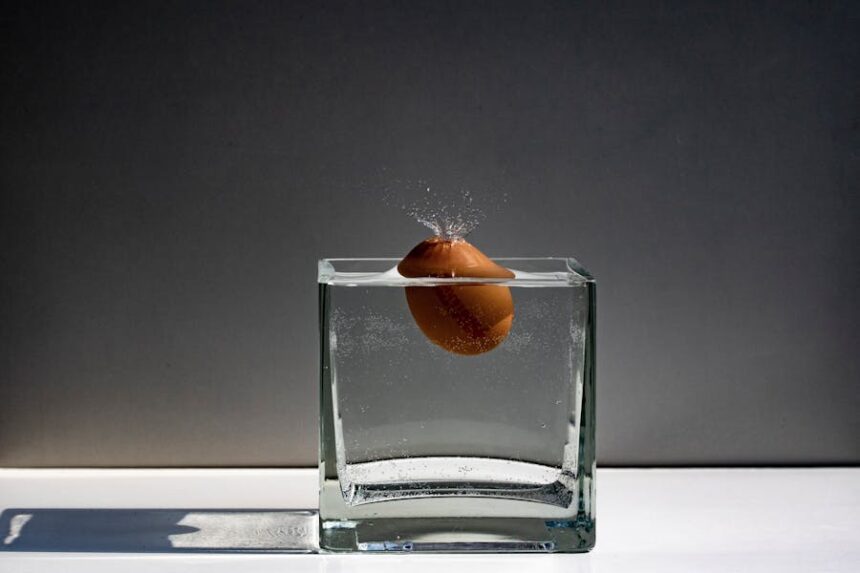In today’s fast-paced world, many women delay starting a family for various reasons, whether focusing on their careers, personal growth, or finding the right partner.
- Understanding Egg Freezing
- Benefits of Egg Freezing
- Extending Fertility Potential
- Freedom and Flexibility
- Protection Against Medical Conditions
- Empowerment Through Choice
- The Emotional and Psychological Impact
- Who Should Consider Egg Freezing?
- The Financial Considerations
- Preparing for the Procedure
- The Future of Egg Freezing
- Conclusion
However, the biological clock doesn’t always align with these life goals. This egg freezing is a revolutionary option that empowers women to take control of their reproductive health and plan their futures on their town errands.
Understanding Egg Freezing
Egg freezing, or oocyte cryopreservation, is the process of extracting, freezing, and storing a woman’s eggs for future use. This procedure allows women to preserve their fertility at a younger age, when their eggs are healthier and more viable, to be used later when they’re ready to conceive.
The process involves several stages, including hormonal stimulation to produce multiple eggs, retrieval of the eggs, and freezing them using vitrification. This method minimizes the risk of ice crystals forming, ensuring higher survival rates upon thawing.
Benefits of Egg Freezing
Extending Fertility Potential
The primary advantage of egg freezing is that it extends a woman’s fertility window. By freezing eggs in her 20s or early 30s, a woman can significantly increase her chances of having a healthy baby later in life, even if her natural fertility declines with age.
Freedom and Flexibility
Egg freezing allows women to focus on other life priorities without the pressure of a ticking biological clock. Whether it’s pursuing a demanding career, traveling, or waiting for the right time to start a family, egg freezing offers flexibility and peace of mind.
Protection Against Medical Conditions
Women who face medical challenges, such as cancer, may benefit greatly from egg freezing. Treatments like chemotherapy can affect fertility, but by freezing their eggs beforehand, women can preserve their ability to conceive once their health stabilizes.
Empowerment Through Choice
Egg freezing shifts the narrative from biological limitations to personal empowerment. Women can make informed decisions about their reproductive health without feeling rushed by age-related fertility concerns.
The Emotional and Psychological Impact
Egg freezing offers physical benefits as well as emotional reassurance. The sense of control it provides can alleviate the anxiety many women feel about balancing their personal and professional lives with the desire to have children. Knowing they have a backup plan can significantly reduce stress and improve overall well-being.
Moreover, egg freezing helps women navigate societal pressures and expectations. The ability to prioritize themselves without sacrificing the dream of motherhood fosters a sense of empowerment and confidence.
Who Should Consider Egg Freezing?
While egg freezing is often associated with women in their late 20s and early 30s, it’s a viable option for anyone who wants to safeguard their reproductive health. It’s particularly beneficial for:
- Career-Oriented Women: Those who wish to focus on their professional growth before starting a family.
- Women Without a Partner: Those who haven’t yet found the right partner but want to keep the option of having a biological child open.
- Women with Medical Concerns: Those facing health conditions or treatments that may impact fertility.
- Women at Risk of Premature Ovarian Failure: Those with a family history of early menopause or other fertility-related issues.
The Financial Considerations
While egg freezing is an empowering tool, it’s important to acknowledge the financial aspect. The cost of the procedure can vary widely depending on location and clinic, with initial cycles often ranging from $6,000 to $15,000, excluding storage fees for the eggs. Some companies and insurance plans are starting to offer coverage for fertility preservation, which is a step toward making the process more accessible.
Women should also weigh the potential costs of subsequent IVF treatments when deciding if egg freezing is the right choice for them.
Preparing for the Procedure
Before freezing eggs, women should consult with a fertility specialist to understand the process, risks, and success rates. A series of tests will evaluate ovarian reserve, hormone levels, and overall reproductive health. The decision to freeze eggs should be made after carefully considering personal and medical factors.
The Future of Egg Freezing
Advances in medical technology continue to improve egg-freezing success rates, making it an increasingly reliable option. As societal awareness grows, more women will likely consider it a viable part of their life plans. Furthermore, increased advocacy for fertility preservation could lead to broader insurance coverage and reduced costs, making egg freezing accessible to a wider audience.
Conclusion
Egg freezing is more than just a medical procedure; it’s a powerful tool that enables women to take charge of their reproductive futures. Offering flexibility, peace of mind, and a sense of control allows women to pursue their goals without compromising their dreams of motherhood. As awareness and technology evolve, egg freezing is set to play a crucial role in shaping the reproductive health landscape for generations to come.




